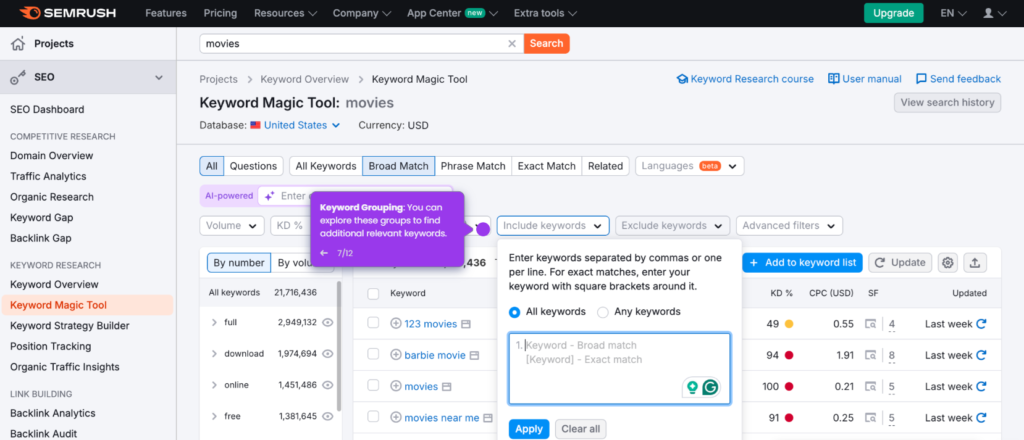Understanding Local SEO is crucial for small businesses. It helps you reach local customers. Keywords play a big role in Local SEO. This article will teach you how to find the best keywords for your business.
What is Local SEO?
Local SEO is a marketing strategy. It helps businesses show up in local search results. For example, when someone searches for “pizza near me,” local SEO helps pizza shops be found. It focuses on location-based searches.
Why Are Keywords Important?
Keywords are the words people type into search engines. They help search engines understand what your website is about. Using the right keywords attracts more visitors. This is especially true for local searches.
Steps to Find Keywords for Local SEO
Finding keywords is easier than you think. Follow these steps to get started:
1. Brainstorm Ideas
Start by thinking about your business. Write down words that describe your services. For example:
- What do you sell?
- What services do you offer?
- What problems do you solve?
2. Use Google Search
Google is a powerful tool for finding keywords. Start typing your business type. Google will suggest popular searches. For example, if you type “best coffee,” it may show “best coffee shop in [your city].”
3. Google Keyword Planner
Google Keyword Planner is a free tool. It helps you find keywords based on your ideas. Sign in to Google Ads. Then, enter your keywords. You will see data about search volume and competition.
4. Check Local Competitors
Look at what your competitors are doing. Search for businesses like yours. Take note of the keywords they use. Visit their websites and see what terms appear often.
5. Use Local Keywords
Local keywords are essential. Include your city or region in your keywords. For example, “plumber in [your city]” is a good keyword. This helps attract local customers.
6. Utilize Online Tools
There are many online tools to help find keywords. Here are a few popular ones:
These tools provide keyword ideas and competition analysis.
7. Analyze Search Intent
Understanding search intent is key. Think about why people search for something. Are they looking to buy? Or are they seeking information? Tailor your keywords to match search intent.
8. Use Google Trends
Google Trends shows how keywords change over time. You can compare keywords to see which is more popular. This helps you choose the best keywords for your business.
9. Long-tail Keywords
Long-tail keywords are specific phrases. They usually have lower competition. For example, “affordable dental clinic in [your city]” is a long-tail keyword. These keywords often attract serious customers.
10. Get Feedback
Ask your customers what they search for. This can provide valuable insights. Create a simple survey. Ask them what terms they would use to find your services.

Credit: www.linkedin.com
How to Use Keywords Effectively
After finding your keywords, you need to use them wisely. Here are some tips:
1. Optimize Your Website
Place keywords in important places. Use them in:
- Title tags
- Headings
- Meta descriptions
- Content
2. Create Local Content
Writing about local events helps too. Create blog posts related to your area. This attracts local visitors to your site.
3. Use Google My Business
Google My Business is essential for local SEO. Make sure your profile is complete. Use your keywords in your business description.
4. Build Local Links
Getting links from local websites boosts your SEO. Partner with local blogs or news sites. This helps improve your visibility.

Credit: www.similarweb.com
Frequently Asked Questions
How Do I Choose Local Keywords?
Identify specific terms your audience uses. Focus on location-based phrases to enhance local search visibility.
What Tools Can Help With Keyword Research?
Utilize tools like Google Keyword Planner, Ubersuggest, or SEMrush for effective local keyword research.
Why Are Local Keywords Important?
Local keywords drive targeted traffic, improving visibility for businesses in specific geographic areas.
How Can I Analyze Competitors’ Keywords?
Use tools like Ahrefs or Moz to uncover competitors’ keywords and discover opportunities for your own strategy.
Conclusion
Finding keywords for Local SEO is not hard. Follow these steps to discover valuable keywords. Use them wisely to attract local customers. Remember, the right keywords can make a big difference. Start optimizing today!
Additional Resources
If you want to learn more about Local SEO, check these resources:



